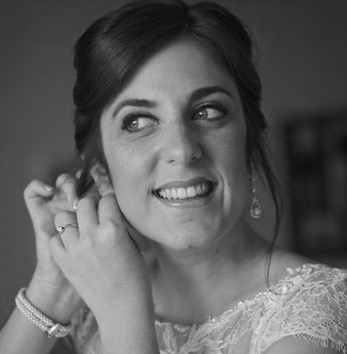Hana Shalabi, a member of the Islamic Jihad, was one of the 1027 prisoners who were released for the return of Gilad Shalit. On February 16th, she was arrested again, for being recognized as a potential threat to the safety of Israel. Following her arrest, she went on a fast for what she claimed to be her unjustified arrest. This hunger strike got her released and deported back to Gaza, and was the opening fire for a new trend amongst Palestinians prisoners.
Although these hunger strikes are getting Israel into a very complicated conflict around the question of the striking prisoners – and possibly the future release of more criminals – I would like to talk about something else on the matter. A Philosophy professor in Tel-Aviv University, where I study nowadays for my B.A., teaches a few of my close friends, who have announced many times she is the best professor in the world.
On March 22nd, this professor participated in a protest which was held on campus. The protesters called for the release of Hana Shalabi. This protest was declared to be illegal, for its support of a member of the Islamic Jihad movement, which stands behind numerous assassinations of Israelis and Jews all over the world. The protesters were also reported to have called the IDF soldiers “murderers.” This protest shocked many students who were on campus at the time. For some, this protest was the final straw, for there is a rich list of anti-Israeli activities in which she had an active role. My friends’ admiration towards her turned into confusion. She was still a great professor and teacher, but how should former IDF solders feel when the person they listen to every week expresses her opinion against them and their friends?
Last semester I had an Israeli-Arabic professor teaching a class about aspects of Israeli politics. I noticed the anti-Israeli atmosphere since day one, but waited several weeks before I stopped showing up to class. This professor used his stage to speak against the Jews who live in Israel, and are the Israeli majority. Almost all mandatory articles talked about the brutal treatment by the western, “white” Jewish Israelis towards the Israeli-Arabs, since the “violent takeover” in 1948. There were references to our grandparents as “immigrants” and to the Arabs as “settlers”, who built this country with their bare hands, while we ruthlessly took it from them. There were also several saying how our purpose is to strip from them all their rights and make it impossible for them to live here. This comes from a person who makes more money than both my parents together, and is a respected professor.
When my friends and I complained to fellow pupils, we got a shower of insults of being “unwilling to hear other people’s opinions” and, yes, some called us racist, because we hate the professor “just for being Arabic.” Well, I find it a bit difficult to agree with, for in my life I’ve had Arabic teachers and acquaintances. It makes sense because, after all, we share the same small piece of land. My problem is not with Arabs or Orthodox or with people who have a slightly different opinion than mine. On the contrary, I live off of debates and arguments. In fact, I might go on and admit that I don’t see myself as someone with a certain opinion on everything. I am very open to hearing others’ opinions on political matters. I don’t relate to a certain political party, and do not always agree with out leaders’ policies.
It is not just on campus. Last Friday, Neturei Karta, an extreme orthodox stream who live in Israel, but opposed to its current existing ( due to a belief that Jews are forbidden to have their own state until the coming of the Messiah), joined the Palestinian Earth Day march, protesting against the occupation of Palestinian lands by Israelis.
I’ll be the first one to admit that in a democracy, everyone may and should be able to express his/her opinion aloud. My problem begins when Israelis who live in Israel, enjoy its resources and many rights, speak against it. And I don’t talk about expressing an opinion against a certain governmental move, or political group or a certain policy. I am referring to Israelis who speak out against Israel and people who publicly despise the place they call “home” and participate in activities targeted to hurt this place, either by making bad PR towards the rest of the world or by joining violent activities. I try to imagine how you would feel if you read an interview by an Israeli who speaks badly of Israel, how you would feel If you hear Israelis saying this is the worst place in the world. How do world leaders feel when people speak badly of their home? What impact does it have on international relations regarding Israel?
I am afraid that even though this is a poor situation, Israel is still a democracy, and those Anti-Israel Israelis will keep living here, working and influencing others. However, those people are “playing dirty”, running over their neighbors, who put a lot of effort in making our country be the amazing place it is. I honestly believe one can’t be active against his home, and keep living in it, enjoying what people who love it have worked for. Jewish, Arabic, left wing, right wing, male, female – it doesn’t really matter, as long as you appreciate your home.























 More news and opinions than at a Shabbat dinner, right in your inbox.
More news and opinions than at a Shabbat dinner, right in your inbox.